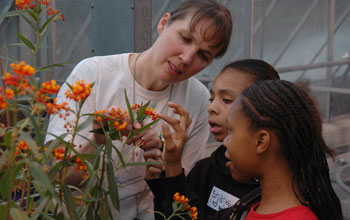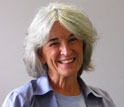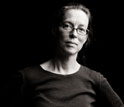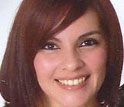News Release 13-114
White House Honors Four Leaders of NSF-Funded Citizen Science Groups Studying Ecology
"Champions of Change" recognized for engaging non-scientists in research

Karen Oberhauser of the Monarch Larva Monitoring Project with young citizen scientists.
June 25, 2013
This material is available primarily for archival purposes. Telephone numbers or other contact information may be out of date; please see current contact information at media contacts.
Four scientists who lead citizen science groups that are funded by the National Science Foundation (NSF) will be honored at a White House ceremony that will be live streamed at Champions of Change from 8:30 a.m. to 10 a.m. this morning and then archived on YouTube.
Along with eight other citizen scientist Champions of Change, these four NSF-funded Champions of Change will be recognized for their exemplary leadership in involving the broader, non-expert community in research on science, technology, engineering or mathematics (STEM).
Today's Champion of Change event is one of a series of weekly Champions of Change events held at the White House to spotlight ordinary Americans who are doing extraordinary work in their communities to help the United States in the future.
NSF-funded Champions of Change
The NSF-funded Champions of Change are:
- Sandra Henderson, the co-founder and director of Project BudBurst. Project BudBurst records the timing of leafing, flowering and fruiting in plants throughout the U.S. With more than 13,000 nationwide volunteers, Project BudBurst is producing data that is helping to improve understanding of plant responses to changing climates. In addition, Henderson recently founded the Citizen Science Academy (CSA)--a first-of-its-kind online resource for educators.
- Julia K. Parrish, founder and executive director of the Coastal Observation and Seabird Survey Team (COASST). COASST organizes coastal residents to monitor beach-cast seabird carcasses at over 350 sites in California, Oregon, Washington and Alaska. Resulting data advances the science of coastal ecology and contributes to natural resources management. The achievements of COASST, which currently has about 850 volunteers, include documenting the world's single largest die-off of seabirds from a harmful algal bloom as well as contributing to many analyses of the potential impacts of resource development on coastal ecosystems in the Pacific Northwest.
- Lee Ann Rodriguez, manager of development for the Conservation Trust of Puerto Rico. Rodriguez is currently training hundreds of Hispanic residents in Puerto Rico--which is undergoing rapid development--to lead citizen groups that will study the impacts of urbanization on the biodiversity and cultural resources of the Manati River watershed in Puerto Rico. Ultimately, Rodriguez's trainees, who range in age from teenagers to retirees, will cumulatively lead thousands of other citizen scientists--many of whom would otherwise have minimal exposure to science. The data they produce will support long-term watershed monitoring and inform land-use decision-making in Puerto Rico.
- Karen Oberhauser, founder and director of the Monarch Larva Monitoring Project. Since the Monarch Larva Monitoring Project started 17 years ago, more than 1,000 project volunteers have collected data on monarch butterflies from Mexico to Canada. The data are being used to help explain geographical and temporal variations in North America's monarch populations. In addition, Oberhauser leads a program that recruits fifth- to eighth-graders to conduct authentic (mentored) research projects on monarch ecology.
Popularity and importance of citizen science
The citizen science Champions of Change are leaders in a field that is currently exploding in popularity--partly because the Internet and new applications afford quick and effective communication between citizen scientists and scientists. More than 600 citizen science groups are currently engaging more than 100,000 worldwide volunteers.
In addition, data from citizen scientists has been incorporated into more than 1,000 scientific papers in peer reviewed journals. In fact, much of current understanding about the distribution of plants and animals, the quality of water in streams and rivers, observed astronomy and the evidence of global climate change was derived from data produced by citizen science projects.
Agenda for the White House event
The White House event will be moderated by Joe Palca, National Public Radio's science desk correspondent. Each Champion of Change will deliver remarks about the scientific contributions of their respective citizen science programs and the personal impact of their programs on participants.
Also, Philip Rubin, principal assistant director for science in the White House Office of Science and Technology Policy, will speak at the event and Ellen McCallie, a program director in NSF's Directorate for Education and Human Resources, will deliver remarks about the general importance of citizen science to research and science education.
A brief description of the work of each Champion of Change and a blog post by each Champion are posted on the White House's Champions of Change website.
NSF support for citizen science
NSF currently funds hundreds of citizen science programs that are advancing science through varied approaches. Several examples include: players in an online game, known as Foldit, solved vexing problems in AIDS research; volunteers with the Einstein@Home project donated their computers' idle time to astronomy research and thereby helped discover a rotating pulsar; the Quake-Catcher Network is currently linking existing networked laptops and desktops in the hopes of forming the world's largest strong-motion seismic network; and about 15,000 volunteers with the Community Collaborative Rain & Hail Network submit daily precipitation readings from backyard rain gauges that are helping to improve precipitation predictions from the National Weather Service.
Reasons for supporting citizen science
NSF supports citizen science because of its value to research and education. "What better way to learn science than to do science?" says McCallie. "It takes a hands-on, minds-on approach to engaging people. No matter what the age or background of a person, participating in citizen science projects generally increases their interest and understanding of science."
Elizabeth Blood, a program director in NSF's Directorate of Biological Sciences, adds: "Despite the use of increasingly high-tech observation systems in scientific research, a critical human observing system--citizen scientists--remains important. Citizen scientists are continuing to advance research by helping to collect and/or process large quantities of important data, often obtained over large geographic areas, that would otherwise be inaccessible."
Other recent milestones for citizen science
In addition to participating in the June 25, 2013, Champions of Change event at the White House, NSF contributed to two other major milestones that raised the prominence of citizen science within the scientific community in 2012:
- Frontiers in Ecology and the Environment published a special issue on citizen science. This was the first issue of a professional journal focusing on citizen science. This special issue, which was funded by NSF and edited by Henderson, is the most popular issue in Frontiers' history.
- The first cross-disciplinary conference on citizen science was held. The conference's organizers included several NSF-funded groups.
-NSF-
-
Sandra Henderson of Project BudBurst.
Credit and Larger Version -
Julia Parrish of the Coastal Observation and Seabird Survey Team.
Credit and Larger Version -
Lee Ann Rodriguez of the Conservation Trust of Puerto Rico.
Credit and Larger Version
Media Contacts
Lily Whiteman, National Science Foundation, (703) 292-8310, email: lwhitema@nsf.gov
Program Contacts
Ellen McCallie, National Science Foudation, (703) 292-5115, email: emccalli@nsf.gov
Related Websites
Hyperlinked NSF overview article on citizen science: http://www.nsf.gov/discoveries/disc_summ.jsp?cntn_id=123903
NSF webcast on citizen science with citizen science experts, including Sandra Henderson. (Site featuers links to many related resources.): http://www.nsf.gov/news/news_summ.jsp?cntn_id=124991
Article on livescience.com on Coastal Observation and Seabird Survey Team (COASST): http://www.livescience.com/24144-citizen-science-coastal-ecology-coasst-nsf-bts.html
Special issue of Frontiers in Ecology and the Environment on citizen science: edited by Sandra Henderson (August 2012 issue): http://www.esajournals.org/toc/fron/10/6
NSF article on NSF-funded National Phenology Network: http://www.nsf.gov/discoveries/disc_summ.jsp?cntn_id=124069
NSF press release on discovery of a pulsar by citizen scientists: http://www.nsf.gov/news/news_summ.jsp?cntn_id=117500
NSF article on major contribution to AIDS research from citizen science gamers: http://nsf.gov/news/news_summ.jsp?cntn_id=121680
The U.S. National Science Foundation propels the nation forward by advancing fundamental research in all fields of science and engineering. NSF supports research and people by providing facilities, instruments and funding to support their ingenuity and sustain the U.S. as a global leader in research and innovation. With a fiscal year 2023 budget of $9.5 billion, NSF funds reach all 50 states through grants to nearly 2,000 colleges, universities and institutions. Each year, NSF receives more than 40,000 competitive proposals and makes about 11,000 new awards. Those awards include support for cooperative research with industry, Arctic and Antarctic research and operations, and U.S. participation in international scientific efforts.
Connect with us online
NSF website: nsf.gov
NSF News: nsf.gov/news
For News Media: nsf.gov/news/newsroom
Statistics: nsf.gov/statistics/
Awards database: nsf.gov/awardsearch/
Follow us on social
Twitter: twitter.com/NSF
Facebook: facebook.com/US.NSF
Instagram: instagram.com/nsfgov





